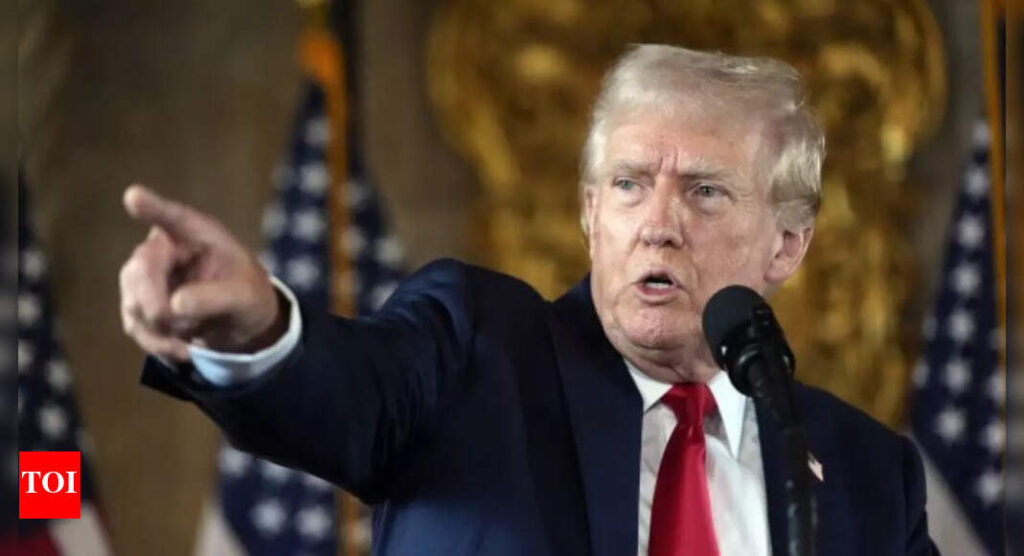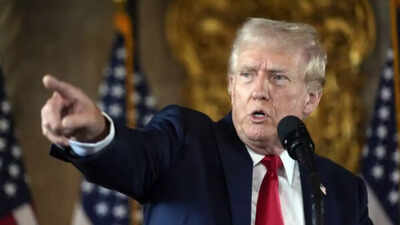President Donald Trump signed an order on Friday aimed at withholding federal funds from schools, colleges, and states that mandate COVID-19 vaccinations for students. The executive order directs the US Department of Education and the Department of Health and Human Services (HHS) to devise a plan for eliminating COVID-19 vaccine mandates in educational institutions. According to an AP report, the agencies have been instructed to identify any discretionary federal grants or contracts being allocated to schools that violate the order and to remove such funding “to the maximum extent consistent with applicable law.”
Justification for the executive order
The order argues that due to the “incredibly low risk” of severe COVID-19 illness among children and young adults, denying students access to education based on vaccination status is an “intolerable infringement on personal freedom.” The directive aligns with Trump’s broader stance on personal liberties and opposition to pandemic-era restrictions, which he often criticized as governmental overreach. However, the order does not specify which specific federal funds might be at risk, leaving much of the enforcement to be determined by the agencies involved.
Limited nationwide impact due to dropped mandates
Despite the strong language of the order, its overall impact may be limited. Over time, most educational institutions across the United States have phased out COVID-19 vaccine requirements.
Furthermore, several states have passed legislation explicitly prohibiting such mandates. As a result, the number of schools and colleges still enforcing COVID-19 vaccine requirements is relatively small. Nevertheless, the directive remains a fulfillment of Trump’s campaign promise, where he repeatedly stated that he would not allocate “one penny” to any school enforcing a vaccine mandate.
COVID-19 Vaccine mandates versus other immunization requirements
While the executive order applies exclusively to COVID-19 vaccinations, it does not affect the long-standing state laws requiring vaccinations against other contagious diseases such as measles, mumps, polio, tetanus, whooping cough, and chickenpox.
All US states mandate certain vaccinations for school attendance, though exemptions exist for children with medical conditions that prevent them from being vaccinated. Additionally, most states allow exemptions for religious or philosophical beliefs.
The status of COVID-19 vaccine mandates in schools and colleges
During the height of the pandemic, several colleges imposed COVID-19 vaccine mandates on students, particularly those living on campus. However, the majority of these institutions have since rescinded such requirements. According to an AP report, some colleges, including Swarthmore and Oberlin, still require COVID-19 vaccination for residential students but provide medical and religious exemptions. At the K-12 level, statewide mandates for COVID-19 vaccines were scarce. California initially proposed adding COVID-19 vaccination to its list of required immunizations for schoolchildren but later abandoned the plan. Similarly, Illinois had a mandate for college students, which was lifted after about a year.
Political and public health reactions
Trump’s order has drawn sharp criticism from Democratic lawmakers, particularly from Senator Patty Murray, a member of the Senate Health, Education, Labor, and Pensions Committee.
According to AP, Senator Murray denounced the order as “unconscionable and unethical,” arguing that vaccine requirements are not a novel concept and have historically included exemptions for medical and religious reasons.
She emphasized that schools and state governments should have the autonomy to determine their vaccine policies in consultation with public health officials, rather than being coerced into compliance by the threat of losing federal funding.


